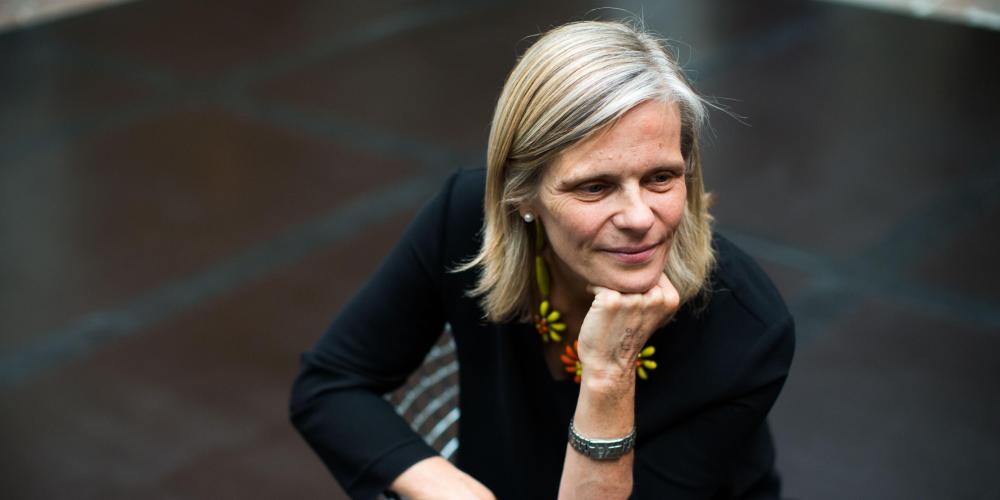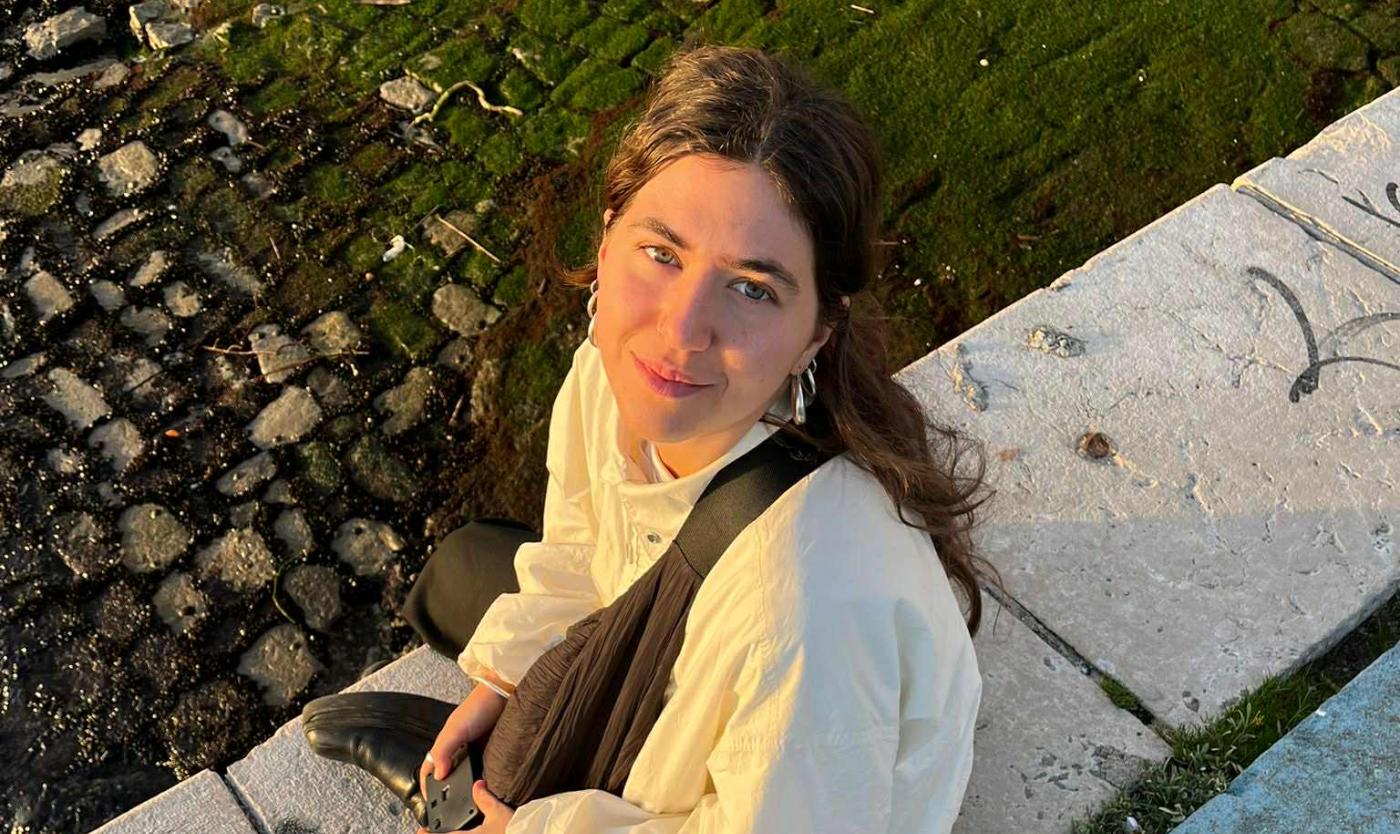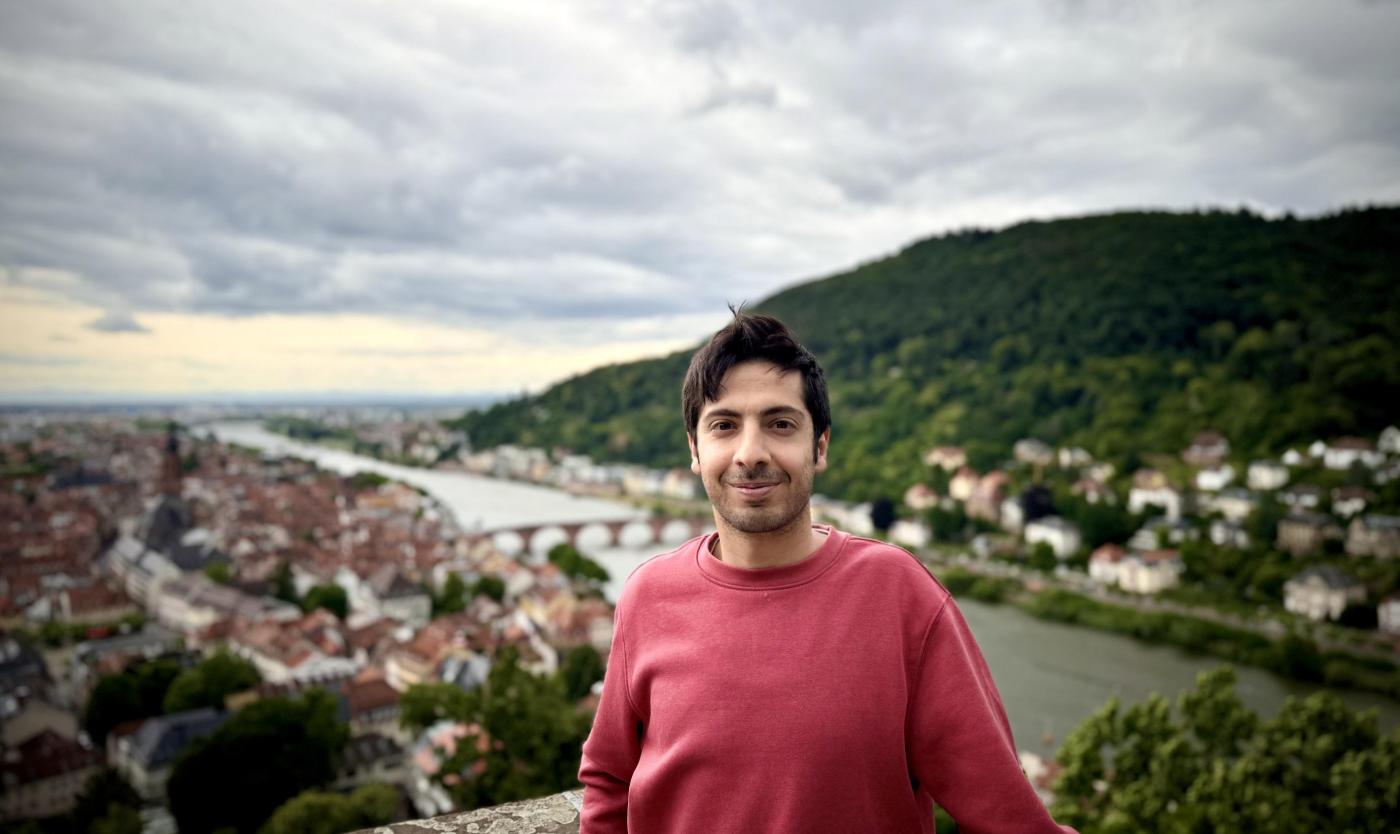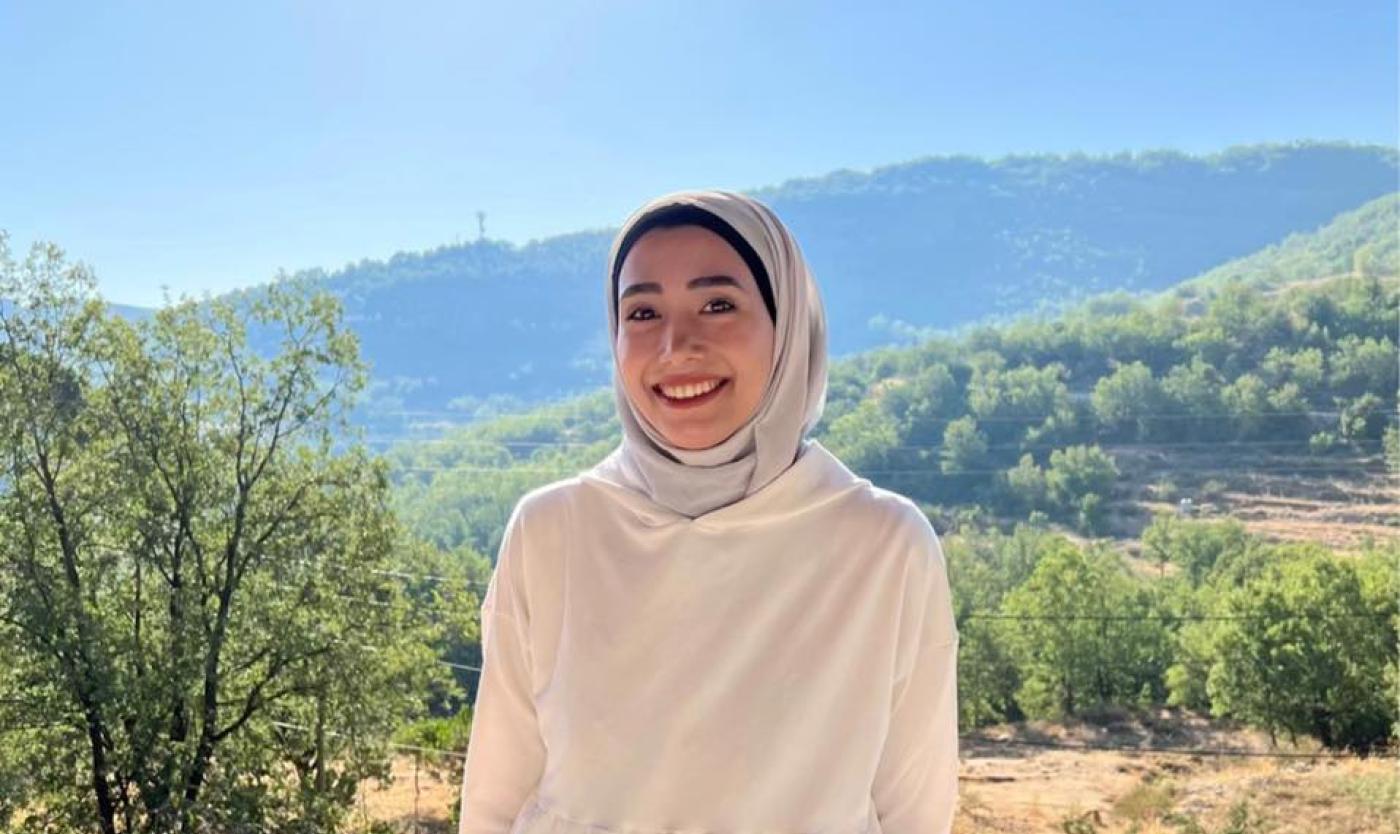
Not everyone gets the chance to start a PhD. Talent, motivation and good ideas are not enough if time or resources are lacking. That’s why the VUB created the Caroline Pauwels Writing Grant a few years ago — a boost in time, funding and confidence for master’s students who want to grow into researchers. Thanks to this grant, dozens of young scientists have already been able to start their PhD, supported by the Research Foundation – Flanders (FWO).
“We want to become more internationally oriented, make the most of all talents, and offer better support — more inclusive and of higher quality,” says Vice-Rector for Research Pieter Ballon. “That’s why we launched the Caroline Pauwels Writing Grant some years ago: for students who lack financial or other support at home to start a PhD, or for students with a physical disability. We pay them for two months as if they were student workers, giving them time to write a proposal for a PhD project. Normally, a professor asks a good student to write such an FWO application in their free time. But if you don’t come from a stimulating or well-resourced environment, that can be a real barrier. “The requirement for a writing grant is that you’re among the top graduates and that a supervisor supports your application. Students who receive the grant not only get financial assistance but also guidance in writing their research proposal and preparing for the interview with the FWO, which awards the PhD fellowships.”

Danaë Giakoumakis
“Without that grant, I wouldn’t have been able to finish my thesis and FWO application that year”
Danaë Giakoumakis received a writing grant in 2021 and obtained an FWO fellowship a year later. She conducts research into Parkinson’s disease within the Department of Applied Biological Sciences.
“The writing grant made all the difference. Because of the nature of my thesis, my long study days and hours in the lab, it became impossible to combine everything with writing an FWO application and working a student job in the evenings. Without that grant, I simply wouldn’t have been able to complete my thesis and the FWO application that year. It just wouldn’t have been feasible.”
Her research into Parkinson’s disease is complex. The disease is the second most common neurodegenerative disorder, and there are still no accurate therapies available.
“There are two types of Parkinson’s: the familial form and the one that isn’t genetically linked. In 10% of cases, the disease has a genetic cause. Within that 10%, we can identify several genes that, when mutated, can trigger the disease sooner or later. In our body, there are 23 identified genes that produce proteins. My research focuses on one specific protein: DNAJC13. Our group studies the relationship between structure and function — looking at how a healthy protein behaves and what goes wrong in disease. DNAJC13 is involved in many processes, which makes the research complex. The protein helps maintain cellular homeostasis — keeping a cell running — but also plays a role in maintaining other proteins in the body.
My results haven’t been published yet, so I can’t and don’t want to share too much detail. DNAJC13 is generally less studied than other identified proteins. There were no existing protocols for how to purify DNAJC13 in order to perform experiments. That means a lot of preparatory work — the kind of background information that doesn’t necessarily lead to publications. But one promising step is mapping the protein’s structure using an electron microscope here on campus. Once we know its structure, we hope to link it to its function.”
“A grant like this shows that the university believes in you — and that confidence helps you secure an FWO fellowship later on”
Manon De Deyne
Manon De Deyne received a writing grant in 2023 and was awarded an FWO fellowship in 2024 for her Sleep-MAMAgement project within the Faculty of Physical Education and Physiotherapy. Manon studies how to improve sleep in new mothers who experience insomnia.
“I didn’t know about the writing grant — my supervisor told me. The grant might not have been essential for obtaining my FWO fellowship, but it certainly helped, especially during my final study year, which was very demanding. I was combining a student job with classes, internships, my thesis, and writing the FWO application. The Caroline Pauwels Writing Grant allowed me to stop worrying about money. Receiving a grant like this is also proof that the university believes in you and your potential for a successful PhD. That vote of confidence really helps when applying for an FWO fellowship.
I started my PhD last year. I’m researching postnatal insomnia — women who develop symptoms of sleeplessness after having their first child. I want to know how physiotherapists can help with this in a behavioural way. These women often don’t have time for intensive therapies, so I’m looking for accessible methods that can still make a difference.
Right now, I’m in the early phase. Over the past year, I’ve developed the research protocol and received ethical approval. At the moment, I’m training the therapists who will deliver the treatment I designed. In about two months, I hope to start the actual research. Participants will follow the therapy and fill in questionnaires to measure whether it’s effective. The study compares different treatment approaches, each focusing on improving sleep quality in its own way. Both are based on scientific insights from sleep physiology, psychology, and rehabilitation sciences, but they emphasise different elements — such as stimulating the internal biological clock or encouraging healthy sleep habits.”

Ehsan Mirabdollah
“Thanks to the writing grant, I could fully focus on my application”
Ehsan Mirabdollah, from Iran, is currently pursuing his PhD in the Robotics Research Group at VUB.
“In Iran, I obtained a bachelor’s degree in mechanical engineering, a master’s in energy systems engineering, and ran a startup for six years producing polymers. I moved to VUB in 2022 to start my master’s in electromechanical engineering. I quickly found a student job in the Department of Chemistry — the same lab where I worked on my master’s thesis.
In my second year, the research group was very happy with my work. My future supervisor asked if I was interested in an academic career and wanted to prepare for an FWO PhD application. Of course, I was. He then told me about the writing grant. Thanks to that financial support, I was able to fully focus on writing my FWO proposal. I wouldn’t say my PhD would have been impossible without it, but it certainly made things much easier.
I’m now working on robotic arms that can, for example, help pick fruit such as raspberries — which are tricky because of their thorns. Over the past year, I developed soft sensors that allow robotic fingers to feel. I’ve presented them at several conferences and public events such as the Science Day. At the ‘I Love Science’ festival, I recently demonstrated a soft-material hand that we plan to use as a humanoid aid for people who have lost a hand. The goal is not just to replicate the hand but to restore touch and grip function. My project focuses on making the material more sustainable — for instance, by developing self-healing properties after damage. This works through chemical principles that merge two different materials without external forces or added agents. I also combine this merging process with liquid metals to integrate stretchable sensors into electronics.”
“The scientific guidance meant more to me than the financial support”

Sarah Al Omari
Sarah Al Omari received an FWO fellowship on 3 October 2025 and was appointed as a PhD researcher in the Faculty of Physical Education and Physiotherapy a month later, on 3 November. During the summer of 2024, she prepared her application thanks to the Caroline Pauwels Writing Grant.
“That grant was an enormous help. It put me in the right mindset and gave me the experience of working closely with my future supervisors. That turned out to be decisive in defining what I wanted to research. The scientific guidance I received meant more to me than the financial aspect. The funding was the reward — but being able to start my research had the biggest impact.
I did my bachelor’s and two postgraduate years in Lebanon. I’m the kind of person who likes to look beyond borders — literally, in this case — because after studying in my home country, I moved to Belgium. And I genuinely love studying, even if many of my friends find that hard to understand. That love for learning brought me here — first to Antwerp for my master’s, and later to the VUB for my PhD.
My PhD focuses on neuromuscular fatigue in stroke survivors. Fatigue is a broad term that covers various forms of tiredness linked to exertion. A specific type that often appears in stroke survivors is neuromuscular fatigue — a reduction in the ability to generate force due to effort. From my clinical experience, I noticed that both staff and patients don’t always fully understand the problem.
I want to break fatigue down and look at it holistically, not just from one angle. I’ll study how brain and muscle mechanisms interact in the development of neuromuscular fatigue. I plan to use innovative, non-invasive brain stimulation techniques to identify causal links between these mechanisms and gain a deeper understanding of fatigue. It will be a challenging project, but by 2029, when I finish my PhD, I hope to have developed an even stronger professional mindset.
I feel that the academic environment is where I belong — it’s highly motivating and inspiring. And working at the VUB truly feels like home. I feel welcome and supported here.”
More information and application procedure (internal via the VUB intranet: Caroline Pauwels writing grant) or via RGO@vub.be.